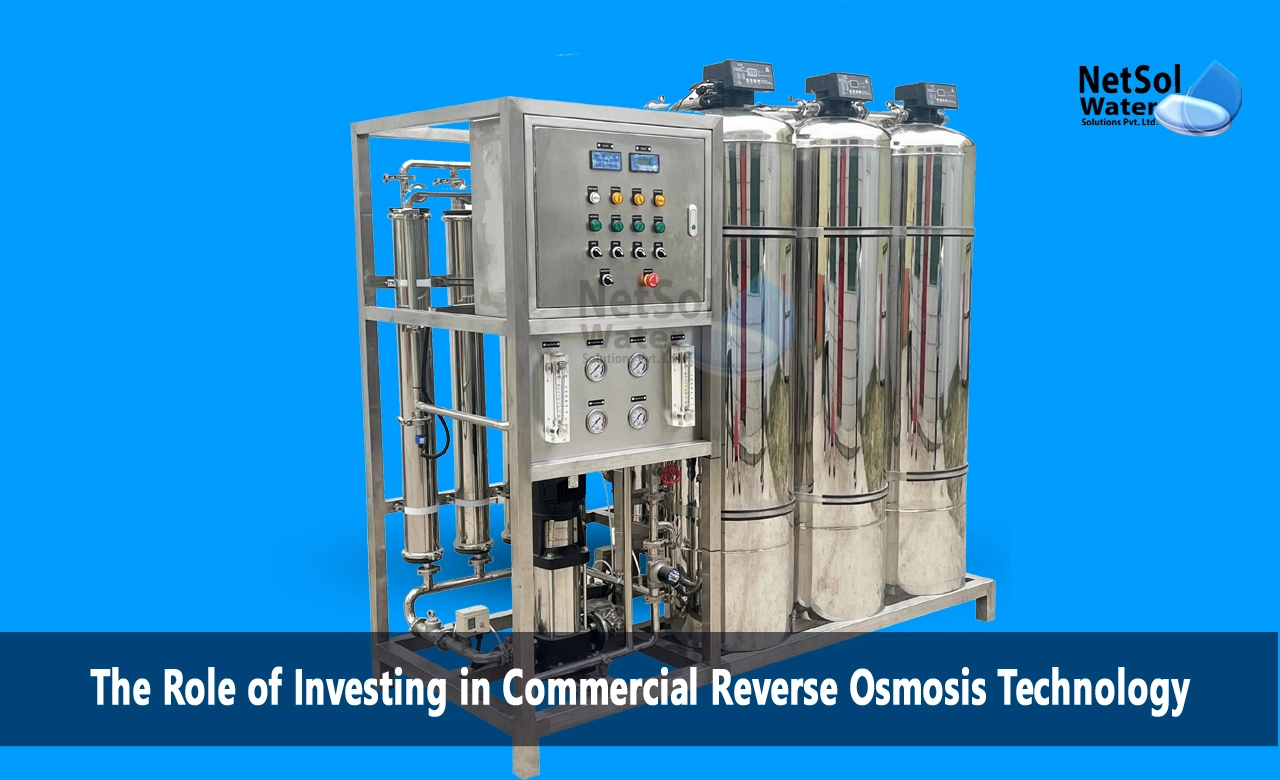What is the Role of Investing in Commercial RO Plant?
Reverse osmosis (RO) is a water purification process that uses a partially permeable membrane to remove ions, molecules and larger particles from drinking water. In RO, an applied pressure is used to overcome osmotic pressure, a colligative property that is driven by chemical potential differences of the solvent, a thermodynamic parameter. RO is used for both industrial processes and producing potable water. It is one of the most common and affordable ways to purify water and remove impurities like salt, metals, viruses and bacteria. Investing in commercial RO plants can improve access to clean water, increase water reuse sustainability, and provide purified water for various industrial applications.
Benefits of Commercial RO Systems
There are several key benefits that make investing in commercial RO systems advantageous:
1- Improved Water Quality - RO removes up to 99% of contaminants, viruses, bacteria, salts, and organics from water sources. This makes water safer to drink and use.
2- Water Conservation - RO enables recycling and reuse of wastewater. This increases sustainability and reduces freshwater withdrawals.
3- Flexible Applications - RO water can be used for drinking, food and beverage processing, pharmaceuticals, semiconductor manufacturing, boiler feed water, and more.
4- Cost Savings - Reusing and recycling water is more affordable than sourcing new freshwater. RO also prolongs equipment life by removing scale-forming minerals.
5- Regulation Compliance - RO helps meet purity regulations and standards for drinking water, wastewater discharge, and process water. This avoids fines and business disruptions.
Key Industries that Benefit from RO Investment
Several industries stand to benefit significantly from investing in commercial RO systems:
1- Municipal Water Utilities - RO allows water utilities to recycle wastewater for potable reuse. This augments freshwater supplies.
2- Food & Beverage - RO provides the high purity water needed for production processes like bottling, brewing, and ingredient extraction.
3- Healthcare - RO water is used in pharmaceutical manufacturing, dialysis centers, and hospitals for sterilization.
4- Power Generation - RO treatment is critical for boiler feed water and cooling systems in thermal power plants.
5- Electronics - Semiconductor fabrication requires ultra pure RO water for cleaning, etching, and other processes.
6- Oil & Gas - RO systems are installed at drilling sites to treat and reuse produced water for fracking and enhanced oil recovery.
Challenges of Adopting Commercial RO
While impactful, there are some challenges with adopting commercial RO:
1- High Upfront Costs - Large capacity RO systems require big capital investments which have lengthy payback periods.
2- Energy Requirements - Operating high-pressure pumps and energy recovery devices consumes electricity.
3- Pretreatment Needs - Feedwater requires pretreatment like filtration to prevent membrane fouling which reduces performance.
4- Brine Disposal - Salt-concentrated RO brine discharge must be properly managed to avoid environmental issues.
5- Specialized Operation - RO systems require trained technicians for monitoring, maintenance, and membrane replacements.
Strategies for Successful Implementation
There are several best practices that can optimize RO investments:
1- Seek Rebates & Incentives - Utilities and governments offer rebates, tax credits, and grants for water efficiency projects.
2- Size Systems Appropriately - Right-sizing systems reduces costs and energy for actual water treatment needs.
3- Design for Easy Maintenance - Sufficient access and space around RO skids enables convenient and safe maintenance.
4- Plan Ahead for Replacements - Budgeting for periodic membrane element replacement avoids emergency costs.
5- Monitor Data & Diagnostics - Smart RO systems with automation provide data analytics for preventing issues.
6- Reuse RO Brine - Options like brine concentration and salt recovery systems reduce wastewater volumes.
Conclusion
Investing in commercial RO purification provides organizations in many industries substantial advantages of improved water quality, conservation, flexibility, and cost savings. While RO systems have notable capital costs and operating challenges, those can be mitigated through careful planning, sizing, maintenance, and emerging technologies. With proper implementation, investing in commercial RO water treatment is a strategic opportunity for sustainable growth, efficient operations, and better water stewardship.
Do you need an advice or assistance on selecting the best water and waste water treatment unit? We have solutions for all your problems!
Let us know your problem, our experts will make sure that it goes away.
For an assistance or related query,
Call on +91-965-060-8473 Or write us at enquiry@netsolwater.com



